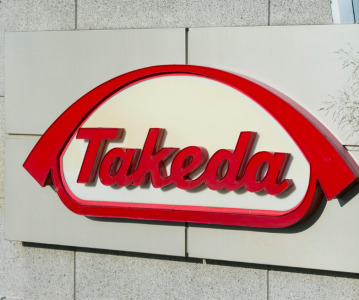Africa’s first COVID-19 vaccine plant receives no orders since launch
.jpg)
The first COVID-19 vaccine plant in Africa is at risk of closure due to lack of demand.
South Africa-based Aspen Pharmacare, who operates the plant, struck a licensing deal to package and sell Johnson & Johnson's COVID-19 vaccine at the end of 2021, with plans to distribute the vaccine around Africa under the name Aspenovax.
However, an Aspen executive confirmed to journalists last week that no orders for Aspenovax have been received, throwing future production into question.
Aspen senior director Stavros Nicolaou told Reuters: ‘If we don't get any kind of vaccine orders, then clearly there'll be very little rationale for retaining the lines that we're currently using for production’.
The issue was first highlighted at a press briefing on April 14, where Africa CDC Director John Nkengasong told journalists that countries are not ordering the vaccine. He added that if this situation continues ‘the risk is very, very high that the company [Aspen] may actually stop producing the J&J COVID vaccines’.
He noted that countries are reluctant to pay for Aspen's vaccine doses because supply issues have eased in 2022 and hundreds of millions of free doses are now widely available.
The launch of Aspen’s vaccine was originally hailed as a ‘transformative moment’ by the World Health Organization (WHO), who said it would help to address inequality in vaccine access.
Negotiations between Johnson & Johnson, Aspen and the African Vaccine Acquisition Trust began in November 2021 and a deal for 400 million doses was agreed in March. Speaking when the deal was announced, Strive Masiyiwa, African Union special envoy on COVID-19, said: ‘It gets us one step closer to securing Africa's future vaccine production and ensures that the gross vaccine inequality we witnessed in the early part of the pandemic is not repeated’.
Although supply has increased significantly this year, Africa has struggled to bring up its vaccination rate- citing issues with cold chain storage, lack of skilled staff and vaccine hesitancy.
According to Africa’s CDC, just under 16% of the population have received two vaccine doses and 1.33% have received the booster. Just 66% of Africa’s vaccine supply has been used so far.
Ramp-up in local vaccine production
Earlier this year, the African Union announced the goal of producing 60% of all vaccines administered in Africa locally by 2040, up from the current 1%. Several plants are being set up to meet this goal.
In March, Moderna announced that it signed a Memorandum of Understanding with Kenya’s government for its first mRNA manufacturing facility in Africa. It stated that it would produce up to 500 million vaccine doses a year for the continent.
BioNTech is also setting up modular mRNA manufacturing facilities in Senegal, Rwanda, and South Africa, while production of the Sinovac COVID-19 vaccine is already underway in Egypt.
After Aspen reported the lack of demand for its vaccine, some public health analysts have raised concerns over the future success of other, similar initiatives.
Aspen senior director Stavros Nicolaou said: ‘If Aspen doesn't get production, what chance is there for any of the other initiatives?’
Related News
-
News mRNA therapy for ovarian cancer and muscle wasting
Researchers demonstrate results of a promising mRNA therapy for ovarian cancer and muscle wasting caused by cachexia, a condition associated with various types of cancers and chronic diseases. -
News Pfizer CentreOne Content Refinement Q3 media buy
For 40 years Pfizer CentreOne has been guiding drug projects to success. Here’s how our services make us an altogether different kind of CDMO: -
News Bora Pharmaceuticals expands development and manufacturing capacity with landmark acquisition
Taiwan-based CDMO Bora Pharmaceuticals have acquired niche generic drugs developer TWi Pharmaceuticals, expanding their outsourced development and manufacturing services with two additional manufacturing facilities. -
News Lonza and Touchlight collaboration to bring expanded end-to-end mRNA offerings
Through a collaboration with biotech company Touchlight, Lonza is set to expand their end-to-end offering for mRNA manufacturing with additional DNA raw material sources, including Touchlight’s doggybone DNA. -
News Oxford University presents promising phase II data for malaria vaccine
The malaria vaccine R21/Matrix-M, developed by researchers at Oxford University, has produced encouraging new data for the global effort against the mosquito-borne disease. -
News NextPharma to acquire Norway manufacturing site from Takeda
Biopharmaceutical company Takeda and CDMO NextPharma have announced an acquisition agreement in which Takeda will divest from their Asker, Norway manufacturing site, set to be acquired by NextPharma. -
News Gut instinct: molecular link between COVID-19 and serotonin cells in the gut
New research may provide further evidence of the gut’s role in SARS-CoV-2 infection and disease severity with a molecular link between serotonin-producing cells in the gut and COVID-19 disease severity. -
News Novavax COVID-19 vaccine receives backing from European Medicines Agency
The European Medicines Agency has backed the Nuvaxovid COVID-19 vaccine for adults as a booster shot to other COVID-19 vaccines.
Recently Visited
Position your company at the heart of the global Pharma industry with a CPHI Online membership
-
Your products and solutions visible to thousands of visitors within the largest Pharma marketplace
-
Generate high-quality, engaged leads for your business, all year round
-
Promote your business as the industry’s thought-leader by hosting your reports, brochures and videos within your profile
-
Your company’s profile boosted at all participating CPHI events
-
An easy-to-use platform with a detailed dashboard showing your leads and performance


.png)
.png)
.png)

.png)
.png)